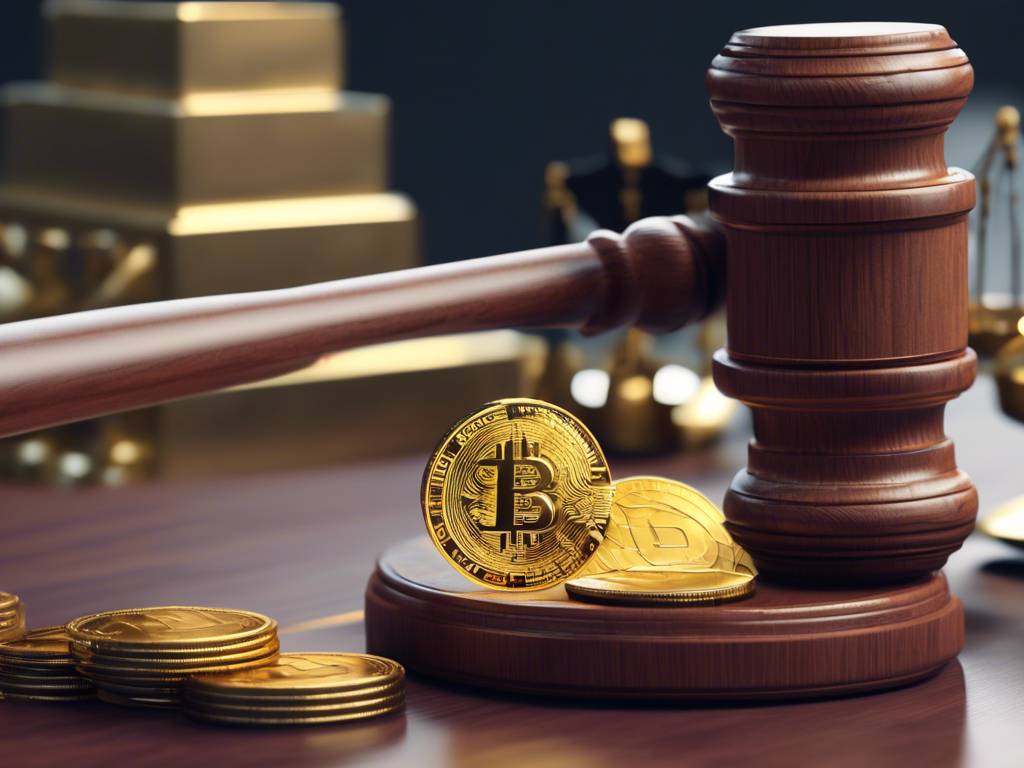Understanding the Criticism of the SEC: A Closer Look at Coinbase Chief Legal Officer’s Concerns
In a recent turn of events, Paul Grewal, the Chief Legal Officer at Coinbase, spoke out against the US Securities and Exchange Commission (SEC) regarding the Debt Box case. Grewal’s statements shed light on the SEC’s unusual procedures and lack of transparency in its dealings with cryptocurrency companies. The implications of these actions are significant, not just for Coinbase but for the entire crypto sector. Let’s delve deeper into the concerns raised by Grewal and understand the broader context of his criticisms.
The Wells Notice Process and Its Importance in SEC Investigations
The Wells Notice is a crucial step in the SEC’s enforcement process, as it notifies a respondent of the charges the regulator intends to bring against them. This notification is intended to provide the respondent with an opportunity to respond and defend themselves adequately. However, Grewal pointed out that the SEC deviated from its standard Wells Notice process in the case involving Debt Box, a move that has raised several red flags in the crypto community.
- The Wells Notice is a formal communication from the SEC to the respondent outlining the charges to be brought against them.
- It is designed to ensure fairness and transparency in the SEC’s enforcement actions.
- In the case of Debt Box, Coinbase did not receive a detailed explanation of the charges, raising concerns about the SEC’s actions.
Questioning the SEC’s Actions: Calls for Clarity and Accountability
Grewal’s criticism of the SEC extends beyond the specific case involving Debt Box. He called on other prominent crypto exchanges that have received Wells notices from the SEC, including Ripple, Binance, Kraken, Robinhood, and Uniswap, to question the regulator’s practices. The lack of clarity and consistency in the SEC’s actions has sparked concerns about potential overreach and arbitrary decision-making within the agency.
- Grewal urged other crypto exchanges to stand against the SEC’s perceived “gaslighting” and demand accountability.
- He highlighted the SEC’s failure to provide clear explanations of charges, leading to confusion and uncertainty in the industry.
- The implications of the SEC’s actions extend beyond individual cases, raising broader questions about regulatory practices in the crypto space.
Legal Battles and Judicial Criticism: Examining the Fallout of SEC Actions
The legal dispute between Coinbase and the SEC, as well as the broader concerns raised by industry stakeholders, have attracted judicial scrutiny. Judge Robert Shelby of the federal district court of Utah condemned the SEC for what he described as a “gross abuse” of power in the Debt Box case. The judge’s remarks underscore the seriousness of the allegations against the SEC and the implications of its enforcement actions.
- Judge Robert Shelby’s criticism of the SEC highlights concerns about regulatory overreach and misconduct in the Debt Box case.
- The SEC’s actions were deemed “marred by false statements and misrepresentations,” further eroding trust in the agency’s enforcement practices.
- The fallout from the SEC’s actions has sparked calls for reform and greater oversight of the regulatory agency.
Industry Backlash and Calls for Reform: Responding to Regulatory Challenges
Recent developments in the crypto industry, including the SEC’s crackdown on companies like Debt Box, have raised broader questions about regulatory practices and transparency. The criticism leveled against the SEC by industry stakeholders reflects growing concerns about the agency’s approach to enforcement actions and the impact on innovation in the crypto sector. As the debate continues, calls for reform and accountability within the SEC are gaining momentum.
- Industry stakeholders are pushing back against the SEC’s perceived overreach and lack of transparency in enforcement actions.
- Criticism of the SEC’s actions reflects broader concerns about regulatory clarity and consistency in the crypto industry.
- Calls for reform within the SEC highlight the need for greater accountability and transparency in regulatory practices.
Hot Take: Navigating Regulatory Challenges in the Crypto Sector
As the crypto industry grapples with regulatory challenges and enforcement actions from agencies like the SEC, stakeholders must remain vigilant and proactive in advocating for transparency and accountability. The recent criticisms and legal battles involving Coinbase, Debt Box, and other prominent players underscore the need for clear regulatory guidelines and consistent enforcement practices. By engaging in constructive dialogue and advocating for reform, industry participants can work towards a more transparent and equitable regulatory environment that fosters innovation and growth in the crypto sector.





 By
By


 By
By

 By
By